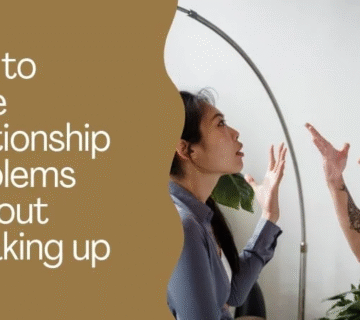Every relationship encounters problems—whether small misunderstandings, communication breakdowns, unmet needs, or major differences. The natural questions are not if challenges will arise, but how you and your partner respond to them that defines the health and longevity of your relationship.
Effective problem solving within relationships fosters deeper connection, builds trust, reduces resentment, and helps partners grow individually and together. It transforms conflicts into opportunities for greater understanding.
This article presents expert-guided tips on relationship problem solving that couples can apply to nurture a stronger and more fulfilling bond.
Why Problem Solving Matters in Relationships
Problems left unaddressed tend to fester, turning into emotional distance, frustration, and unresolved resentment. According to relationship therapists, couples who develop skills to address issues promptly and collaboratively enjoy higher satisfaction and resilience.
Effective problem solving promotes:
-
Open and honest communication
-
Recognition and validation of emotions
-
Mutual respect and empathy
-
Cooperative attitude toward challenges
-
Strengthened intimacy and commitment
Step 1: Set a Positive Tone and Create a Safe Space
The atmosphere and timing when raising relationship issues greatly impact how discussions unfold. Choose a calm, private moment, free of distractions or fatigue.
Begin with positive intentions: “I appreciate how much you care, and I want to work through something that’s been bothering me.” Setting a collaborative tone invites openness rather than defensiveness.
Step 2: Identify and Define the Problem Clearly
Some relationship conflicts stem from misunderstandings about what the true issue is. It’s essential to precisely identify the problem, including underlying emotional needs.
For example, a conflict about spending too much time on work might actually relate to feeling neglected or unappreciated. Defining the problem correctly ensures focused and effective solutions.
Step 3: Communicate Openly and Listen Actively
Express your feelings and thoughts clearly using “I” statements to avoid blame, e.g., “I feel lonely when we don’t spend time together.” Avoid accusations like “You never spend time with me.”
Active listening means fully acknowledging your partner’s perspective, summarizing their points, and validating their emotions without interrupting. This encourages empathy and reduces escalation.
Step 4: Agree on the Problem and Desired Outcomes
Problem solving requires mutual recognition of the issue and shared goals for resolution. Discuss what each partner hopes to achieve, whether it’s more quality time, better finances, or improved communication.
Collaboration at this stage builds motivation and trust to work toward solutions.
Step 5: Brainstorm Solutions Together
Generate ideas openly without judgment. Explore multiple approaches and consider compromises.
For example, if finances are stressful, solutions might include budgeting together, cutting expenses, or seeking professional advice.
Focus on what’s achievable and sustainable for both partners.
Step 6: Implement and Evaluate Solutions
Agree on specific actions to try and set a timeline for review. This keeps problem solving dynamic and accountable.
Be patient as adjustments may be needed. Celebrate small wins and lessons learned.
Step 7: Know When to Seek External Support
Professional counseling or therapy can provide tools and guidance when problems feel overwhelming or cycles become entrenched. Couples therapy helps improve communication, resolve conflicts, and restore emotional connection.
Remember, seeking help is a strength and investment in your relationship’s future.
Read More: How to Stop Arguing in a Relationship: Effective Tips for Peace and Understanding
Summary
Strong relationships are built on effective problem solving. By setting positive intentions, defining issues, communicating kindly, listening genuinely, collaborating on solutions, and seeking support if needed, couples can navigate challenges gracefully.








No comment